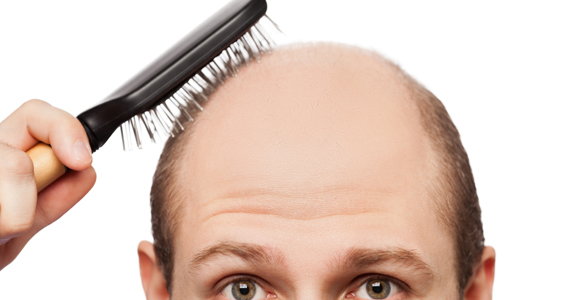People have been trying to find a cure for hair loss for years. Adequate nutrition is essential for healthy hair and there is insufficient evidence that taking an iron supplement will stop hair loss. However, there is evidence that individuals with hair loss have lower iron stores than those who do not have hair loss. There is also evidence suggesting anemia is associated with hair loss. Iron deficiency can cause anemia. Never take an iron supplement without your doctor's supervision because too much iron can be toxic and, according to the Iron Disorders Institute, can actually be a cause for hair loss.
Iron Deficiency and Hair Loss
Treating iron deficiency when you are not anemic is controversial according to researchers of a study titled "The diagnosis and treatment of iron deficiency and its potential relationship to hair loss" published in 2006 in "Journal of the American Academy of Dermatology". But they stated in this study that they believe treating iron deficiency enhances treatment for hair loss. This makes sense, as all the nutrients in your body work in synergy to keep your cells healthy including your hair follicles.
Iron is a mineral in your body, mainly found in hemoglobin, a protein that makes up your red blood cells and carries oxygen to all of the cells in your body. Your doctor can check if you are anemic by checking your hemoglobin. Iron deficiency can cause iron deficiency anemia, in which case your doctor would also check for low ferritin to confirm the anemia is caused by iron deficiency. Although there is no sufficient evidence that iron deficiency independently causes hair loss, if you have hair loss, you may have low ferritin.
Dietary Iron
It is always better to consume nutrients from food sources rather than from supplements. The recommended dietary allowance for iron is eight milligrams a day for men over 18 and 18 milligrams a day for women over 18. For men and women over 50 the recommended dietary allowance is eight milligrams.
Dietary iron is found in two forms, heme iron and non-heme iron. Heme iron is found in the animal sources of iron such as beef, chicken, tuna, and turkey and is easier for your body to absorb. Non-heme iron is plant iron and is found in plant sources of iron such as fortified cereals, beans and lentils, spinach, and bread. Non-heme iron is not as easily absorbed by your body. Vitamin C and meat proteins increase your absorption of this iron. Calcium, tannins such as in tea, phytates such as in whole grains and legumes, and polyphenols found in many plant foods with antioxidant properties, can reduce non-heme iron absorption.
Jamie Yacoub, M.P.H., R.D. is a clinical dietitian with a Master's of Public Health in Nutrition, and expected Certified Diabetes Educator (C.D.E.) fall 2013. She obtained her Bachelor of Science in clinical nutrition from UC Davis after four years, during which time she participated in internships in several different nutrition environments including Kaiser Permanente and Women, Infants, & Children (W.I.C.). After graduating from UC Davis, she went on to study public health nutrition at Loma Linda University where she obtained her Master's of Public Health in Nutrition. Jamie completed the community nutrition portion of her dietetic internship as an intern for a Certified Specialist in Sports Nutrition. She completed both the food service and clinical portions of her dietetic internship at a top 100 hospital in the nation, where she was hired as the only clinical dietitian shortly after. Jamie now works as an outpatient clinical dietitian and is an expert in Medical Nutrition Therapy (M.N.T.) using the Nutrition Care Process (N.C.P.) including past medical history and current laboratory values as a basis of nutrition assessment.



